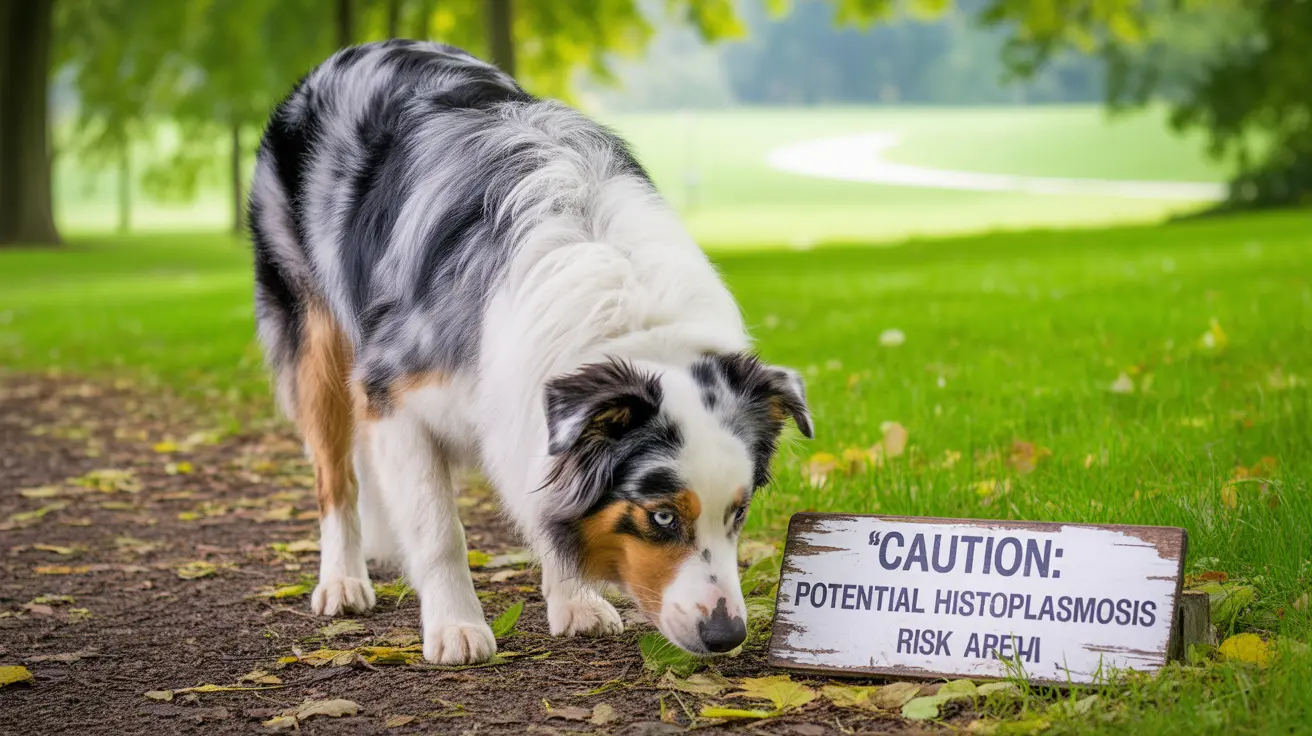What is Histoplasmosis in Dogs?
Histoplasmosis in dogs is a serious fungal infection caused by Histoplasma capsulatum, a organism commonly found in soil contaminated with bird or bat droppings. This potentially dangerous disease primarily affects dogs in river valley regions and areas with high concentrations of avian or bat populations.
While any dog can contract histoplasmosis, working and herding breeds are particularly susceptible to developing the disseminated form of the infection, which can spread throughout the body. Toy breeds, on the other hand, tend to experience more localized gastrointestinal symptoms.
Signs and Symptoms
Dogs infected with histoplasmosis typically display a range of symptoms that can vary depending on the form and severity of the infection:
- Persistent coughing and difficulty breathing
- Lethargy and depression
- Unexplained weight loss
- Loss of appetite
- Fever
- Diarrhea (sometimes containing blood)
- Enlarged lymph nodes
- Eye problems in some cases
In severe cases where the infection spreads throughout the body, dogs may develop symptoms related to multiple organ systems, making the condition particularly dangerous if left untreated.
Diagnosis and Testing
Veterinarians employ various diagnostic methods to confirm histoplasmosis in dogs. The process typically begins with a thorough physical examination and detailed medical history, particularly noting any potential exposure to contaminated environments.
Common diagnostic procedures include:
- Blood tests and complete blood count
- Fungal cultures
- Chest X-rays
- Cytologic examination of tissue samples
- Urine antigen testing
- Rectal scrape samples
Treatment Options and Management
Treatment for histoplasmosis in dogs typically involves long-term antifungal therapy, with most cases requiring 4-6 months or longer of medication. The most commonly prescribed medication is itraconazole, though fluconazole may be used in certain situations, particularly for cases involving eye infections.
For severe cases, treatment might include:
- Combination antifungal therapy
- Supportive care for specific symptoms
- Regular monitoring of organ function
- Dietary modifications if needed
- Possible hospitalization for critical cases
Prevention and Risk Reduction
While completely preventing histoplasmosis can be challenging due to its environmental nature, several steps can help reduce your dog's risk:
- Avoid areas with large amounts of bird or bat droppings
- Keep dogs away from construction sites or areas where soil is being disturbed
- Maintain good hygiene practices after outdoor activities
- Regular veterinary check-ups to catch early signs of infection
Frequently Asked Questions
What are the common causes of histoplasmosis in dogs and how can I prevent it?
Histoplasmosis is caused by dogs inhaling or ingesting the Histoplasma capsulatum fungus from contaminated soil, particularly in areas with bird or bat droppings. Prevention involves avoiding high-risk areas and maintaining good hygiene practices.
How is histoplasmosis diagnosed in dogs, and what tests are typically used?
Diagnosis involves physical examination, blood tests, fungal cultures, chest X-rays, and sometimes tissue samples or urine antigen testing. Your veterinarian will choose the most appropriate tests based on your dog's symptoms.
What is the best treatment for histoplasmosis in dogs, and how long does it usually take?
The primary treatment is antifungal medication, typically itraconazole, administered for 4-6 months or longer. Severe cases may require additional medications or supportive care. Treatment duration depends on the severity and response to therapy.
Can histoplasmosis be fatal in dogs, and what factors determine the prognosis?
Yes, histoplasmosis can be fatal if left untreated or in severe cases. Prognosis depends on factors like the extent of infection, timing of diagnosis, overall health of the dog, and response to treatment. Early diagnosis and proper treatment significantly improve outcomes.
How can I manage or prevent relapses of histoplasmosis in my dog after treatment?
To prevent relapses, complete the full course of prescribed medication, attend all follow-up appointments, monitor for recurring symptoms, and avoid areas where the fungus is likely present. Regular veterinary check-ups can help catch any signs of recurrence early.






